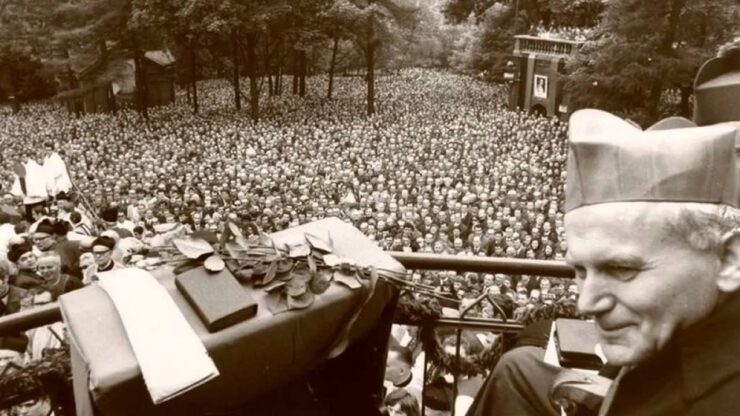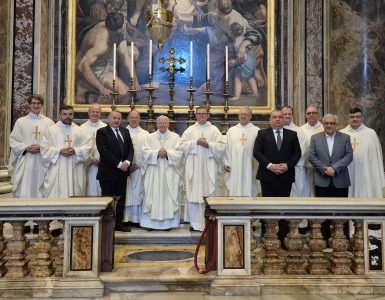Probably it all started in 1972, during the traditional pilgrimage of men to Piekary. On that day, in front of a huge crowd, the Archbishop of Kraków, Karol Wojtyła, strongly criticized the attacks on religious freedom. To some extent – even, to a large extent- this was a novelty. Due to his theological and philosophical formation, that is, the shaped concept of man and the vision of history, Wojtyla did not see himself in opposition to a particular system, to an ideology, or even “against” someone. He was interested only in the truth about man, respect for his uniqueness as a person. However, Marxism corroded the soul of Poland. The social and economic situation has become increasingly serious. There was a danger that the country would plunge into all-permissive lies and deepening people’s apathy. And, that is why Cardinal Wojtyla decided that it was time to start speaking clearly and decisively.
I don’t know if it was such a clear decision. But I clearly remember what one day he said in his homily, and especially the tone in which he said: “How could I remain silent?” And, precisely because he was not silent, that he did not want to remain silent, he became a defender of the persecuted: intellectuals, students, Jews, revisionists, dissidents. He was not afraid to meet with opposition leaders. He acted prudently without exposing anyone to unpleasant consequences. But this way he supported them, he helped them morally. He also helped directly, that is, financially, people of science and culture, whom some zealous communists had deprived of their jobs. Of course, he did so with great discretion, not wanting to humiliate anyone. I can talk about this from my own experience, because he often asked me to be a “broker” in this regard.
With the permission of Cardinal Stanisław Dziwisz – “At the side of the Saint”
St. Stanislaw BM Publishing House, Krakow 2013





